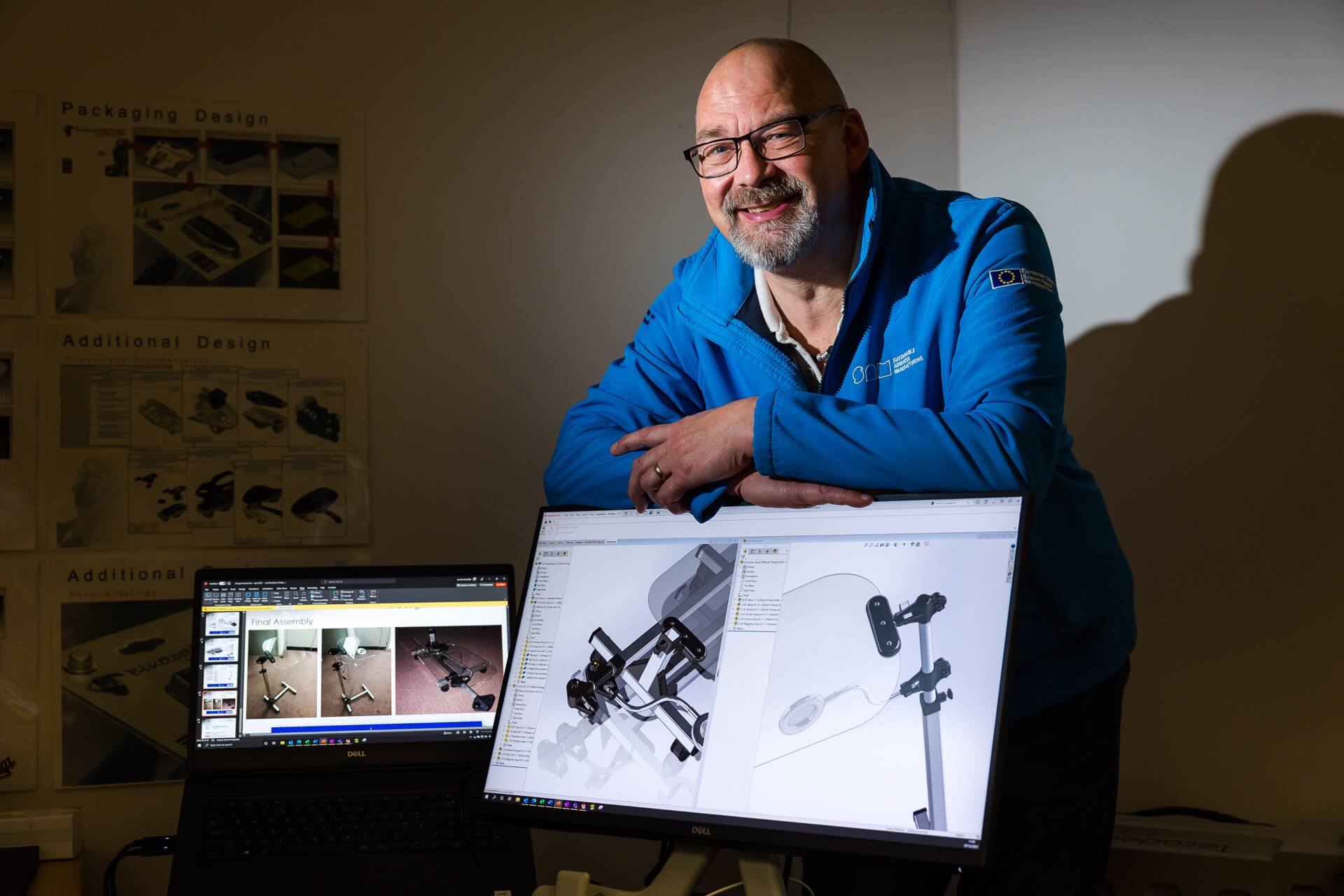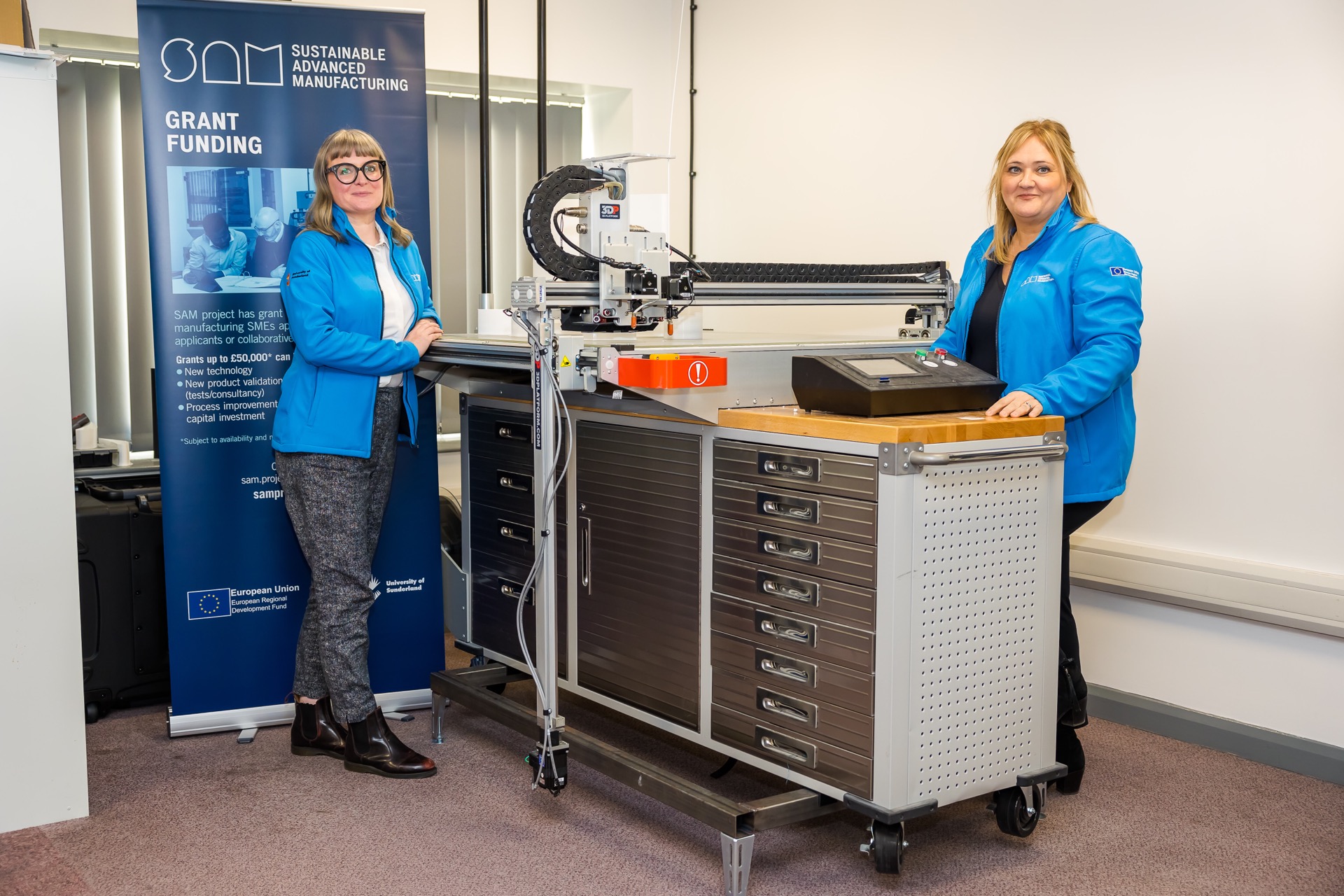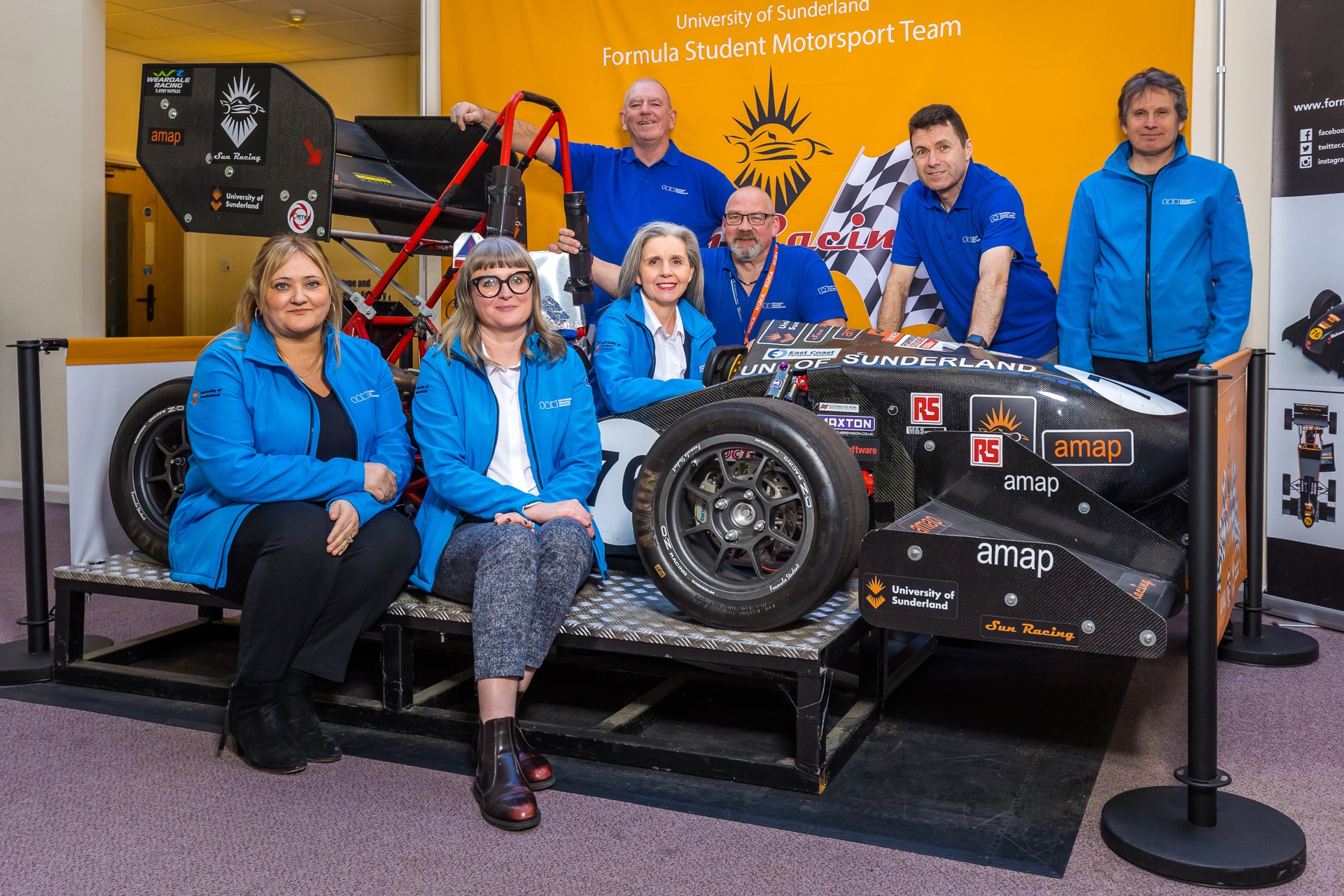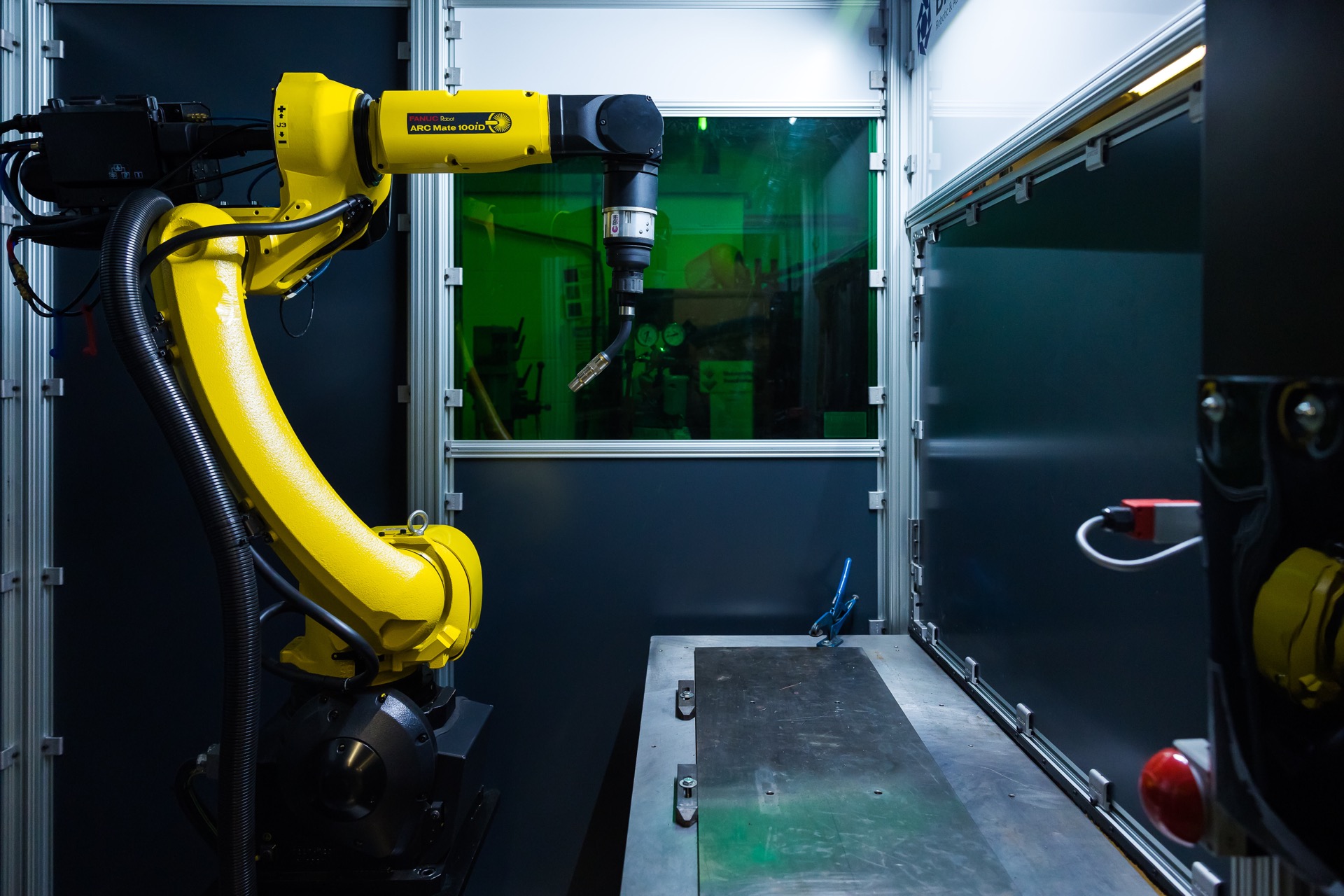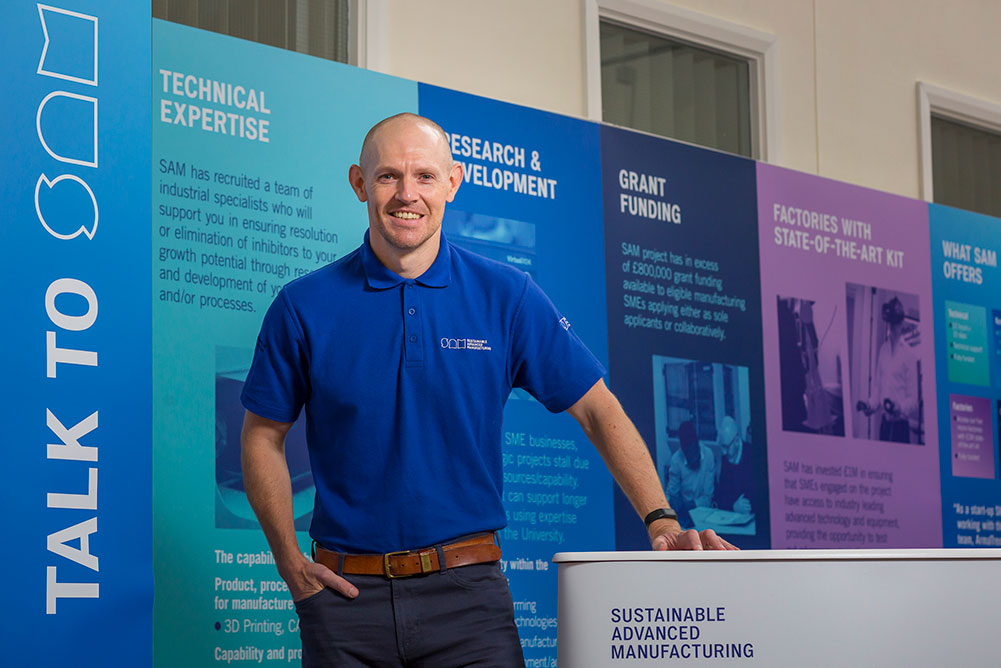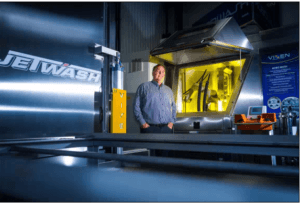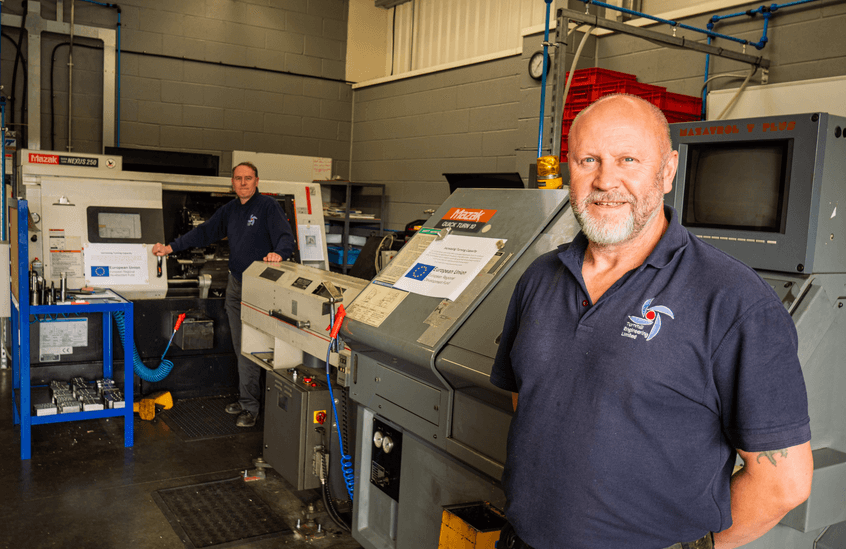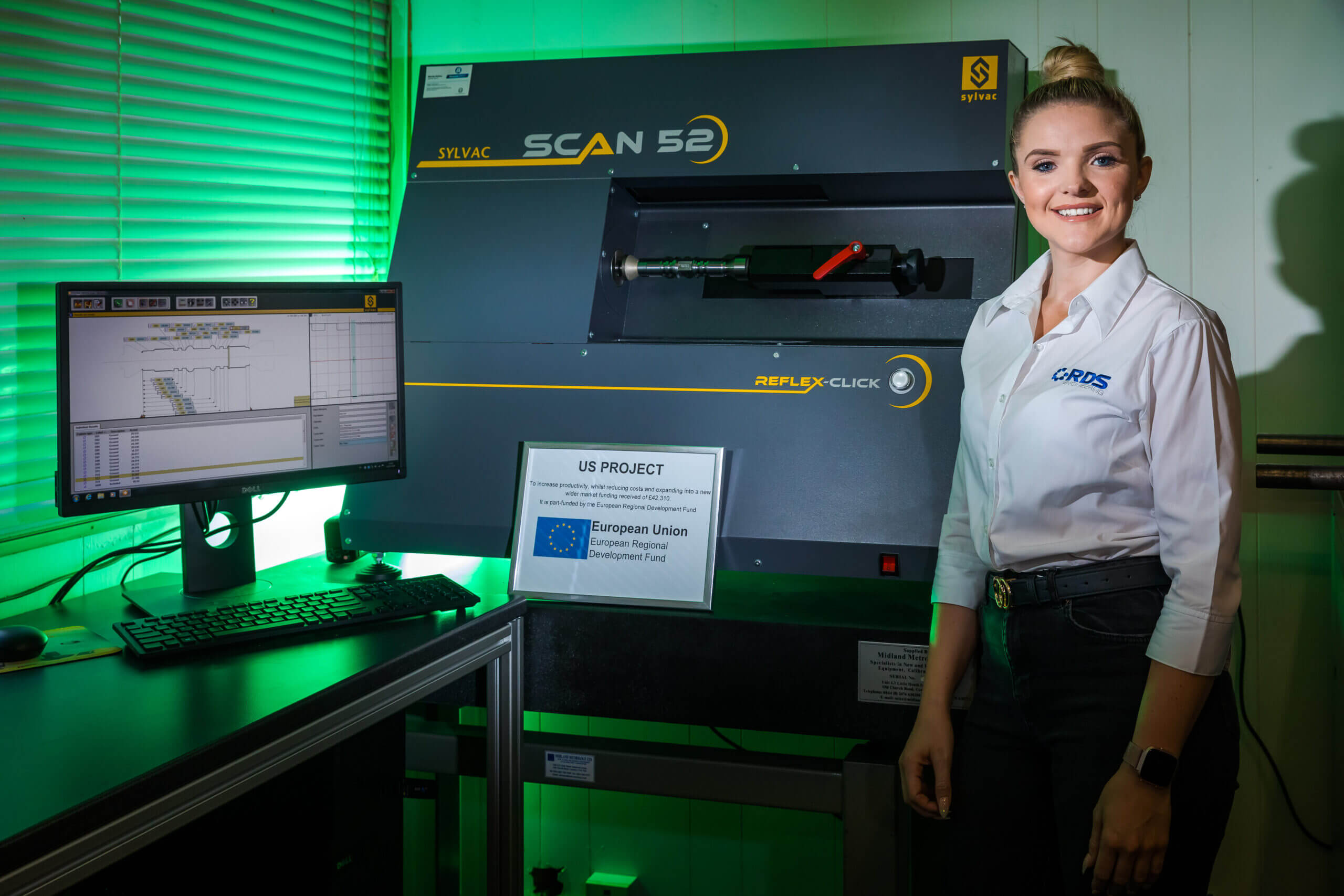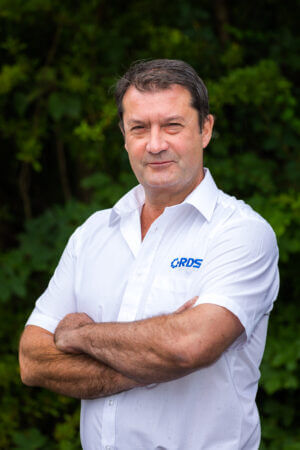Neil Taylor, Automation & Robotics Specialist, explains why embracing robotics is key to ensuring SME manufacturers remain competitive.
When I was first appointed Robotics Programmer at the then Tallent Engineering, back in the early 1980s, the technology was often seen as somewhat of a threat to jobs, and a far-fetched concept by many others.
Based out of Aycliffe Business Park, in County Durham, Tallent Engineering, now Gestamp, was one of the first non-OEMs (original equipment manufacturers) to embrace robotics, and as a result grew from being a multi-product manufacturer with just a single site, which had a handful of robots, into one of the world’s leading automotive Tier One suppliers, specialising in specifically in chassis and suspension products in just a matter of years.
Having started out as a welder, my role as robotics programmer initially saw the company invest in 10 robots, which at that time, none of the staff had even heard of and saw productivity increase significantly, helping us ramp up the output of parts we were producing for the Ford Sierra, improving quality and drastically reducing lead times.
Fast-forward 40 years and Gestamp now has over 1,200 robots operating at its Newton Aycliffe site alone, (the largest none OEM population of robots on one site in Europe), with tens of thousands more in operation across the globe – ranging from robotic welding, both MIG & Spot, machine tending, bushing, inspection and palletising. Robots have been key to that growth and success, along with challenging the norms of traditional production.
However, despite the rapid advancement of robotic technology over the last few decades and the heightened adoption of automated processes by the majority of automotive OEMs and Tier One suppliers, many manufacturing SMEs are still yet to harness and embrace the potential of robotics within their operations, often believing them to be out of reach price wise or technologically challenging.
For many, their reservations are predisposed to thinking that they would unable to afford the technology, that the costs will far outweigh the business benefits, or that the skills required are out of reach, however this couldn’t be further from the truth in the majority of cases, especially with the emergence of technology such as collaborative robots (cobots).
Here at the ERDF-funded Sustainable Advanced Manufacturing (SAM) Project, we have a team of technical experts working shoulder-to-shoulder with the region’s SME manufacturers to help break down the barriers to embracing new technology and improving processes.
One such company to benefit from the support is Almet. The Washington-based specialist fabrication business is set to increase its factory size by 12,000 sq ft over the coming months as it invests in robotic technology in a bid to enhance its processes. Working with the team at SAM, Almet was able to explore how the use of robotic welding technology could benefit its business, as well as tapping into the funding required to support the purchase of its new equipment. It was also able to weigh up the various alternative and benefits of deploying either cobots or traditional industrial robots based upon their specific applications, needs, volumes and repeat orders.
Another success story to arise from SAM’s fully-funded support is Pilgrim Spirit. Based in Alnwick, the premium brand gin producer was able to receive an in-person proof of concept demonstration of state-of-the-art cobot technology. This demonstrated that manual handling errors could be significantly reduced and even eliminated by using an automate process, whilst allowing them to increase productivity and utilise what would otherwise be downtime by extending operations to a 24 hour basis. This is subsequently to be deployed in their facilities following on from the engagement with the SAM Project. Initially they had paid a visit to our home at the University of Sunderland’s Industry Centre to find out more about 3D printing, but following on from this and seeing the potential after paying a visit to our six specialist factory areas, which have seen over £1m invested in new technology, they broadened their thinking and looked at how automation could benefit them.
Boasting everything from robotic welding cells to palletising robotics, collaborative robots, sensors and automation, latest virtual/augmented reality technology, sophisticated 3D printers, including metal printers, plus much more, the factories provide the region’s SMEs with an opportunity to test out advancements in their sector prior to making substantial financial investment and has been well received by the industry since its launch in 2018.
Not only do these facilities allow companies to fully-understand how the technology works and how it is relevant but, similar to Almet, it also allows the companies to access matched-funding grants to support the purchase and installation of these technologies for their business.
Recent independent reports show that companies who engaged in the first phase of the SAM Project reported significant growth and improvements, including such things as improved layout, increased productivity, being more competitive through adoption of latest technology and increases in quality.
Companies such as Almet and Pilgrim Spirit have seen business skyrocket, creating new jobs and winning numerous new clients or opening up new markets as a result of technology adoption, and specially robotics and automation.
Yet, despite a recent report by the British Automation & Robotics Association (BARA) revealing that UK industrial robot sales were up 7.5% in 2020 on the previous year, there are still scores of manufacturing SMEs across the North East that are yet to have their eyes opened to the huge, somewhat untapped potential of robotic technology and the support on offer to help them steal a lead on the competition.
While it’s pleasing and reassuring to see sales of industrial robotics increase, we must continue encouraging more of the region’s manufacturers, particularly our SMEs, to explore all of the avenues of support available to them as we look to step out from the pandemic on the strongest possible footing and ensure UK manufacturing becomes more and continues to remain competitive on the global stage.
It is significant to note that the UK lags behind other major manufacturing economies in its use of robotics, so not only can SMEs increase local market share, but they can also explore wider markets and bigger potential that have previously been untapped.
Not only do robotics help significantly improve productivity, but they can also lead to reduced operating costs, improved quality and less material waste and in order to further build on this heightened demand for industrial automation, we must continue to champion projects such as SAM.
So, if you’re a small to medium sized manufacturer, or even a business looking to begin manufacturing, talk to SAM today to find out how the support could benefit your business.
It could be just the push you need to step your business up a gear, be that via automation or any of the other technologies or product and process design support on offer from within the SAM team…

